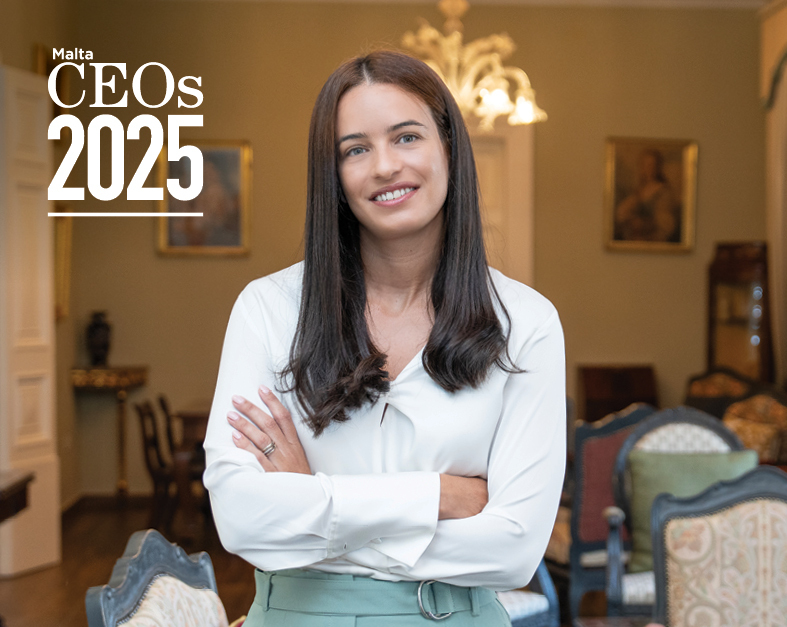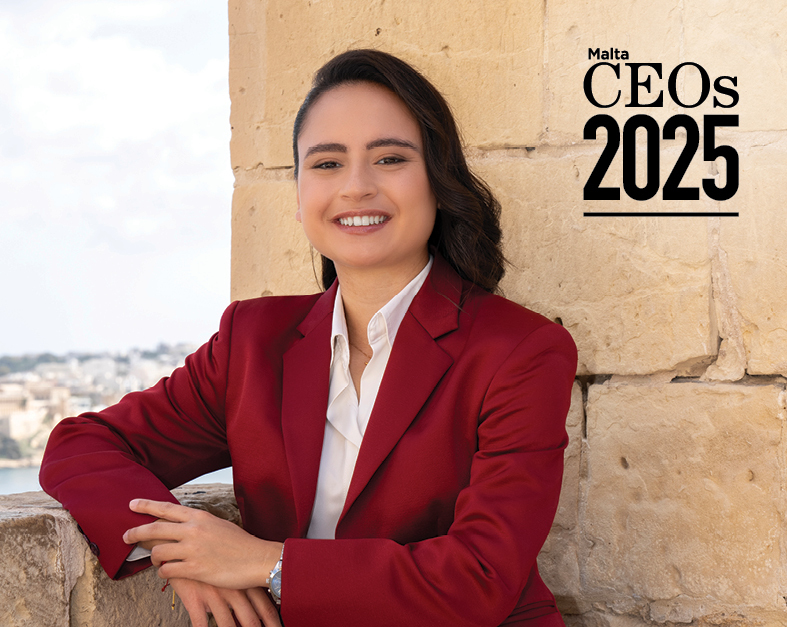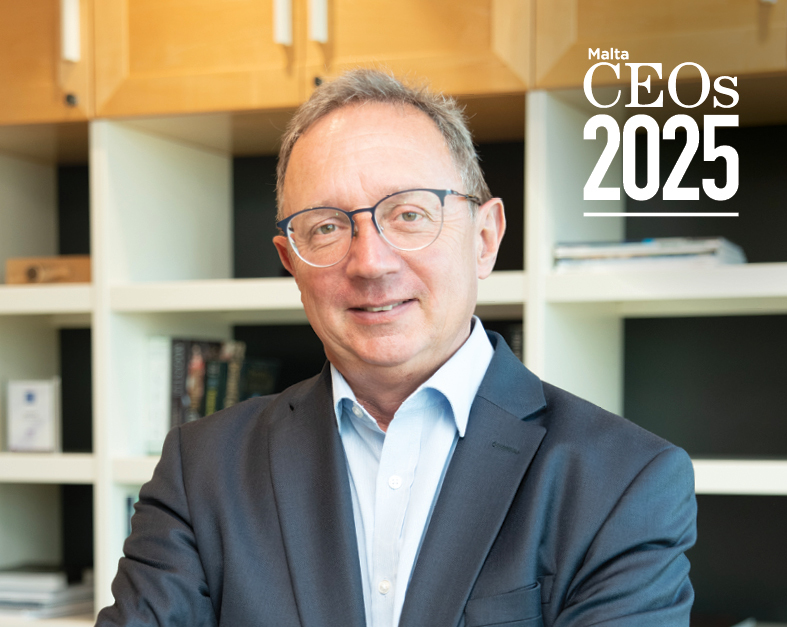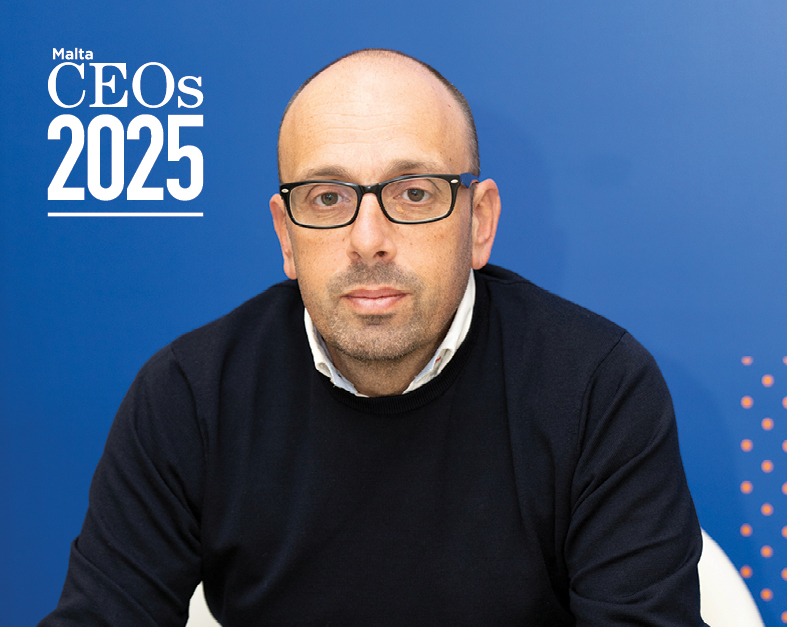After earning a Law degree from the University of Malta in 2011 and learning the ropes of the family business across various roles, Dr Sarah Cassar, Managing Director of St George’s Care, now oversees operations at Casa Antonia and The Imperial – two care homes that are setting new standards for the industry and redefining what it means to live in a retirement home.
“Even though I studied law, I always knew I wanted to join the family business someday, and I believed that a law degree would benefit both me and the company,” shares Dr Sarah Cassar. She was right, given that, 13 years later, Sarah routinely prepares and reviews contracts for staff, residents and suppliers. Before reaching this point, she spent several years exploring different aspects of the business, even working in the front office while still a student. “I learnt a lot about the organisation during that time, and I’m now in a much better position to manage people who do jobs I once did myself. I can understand their challenges better,” she explains.
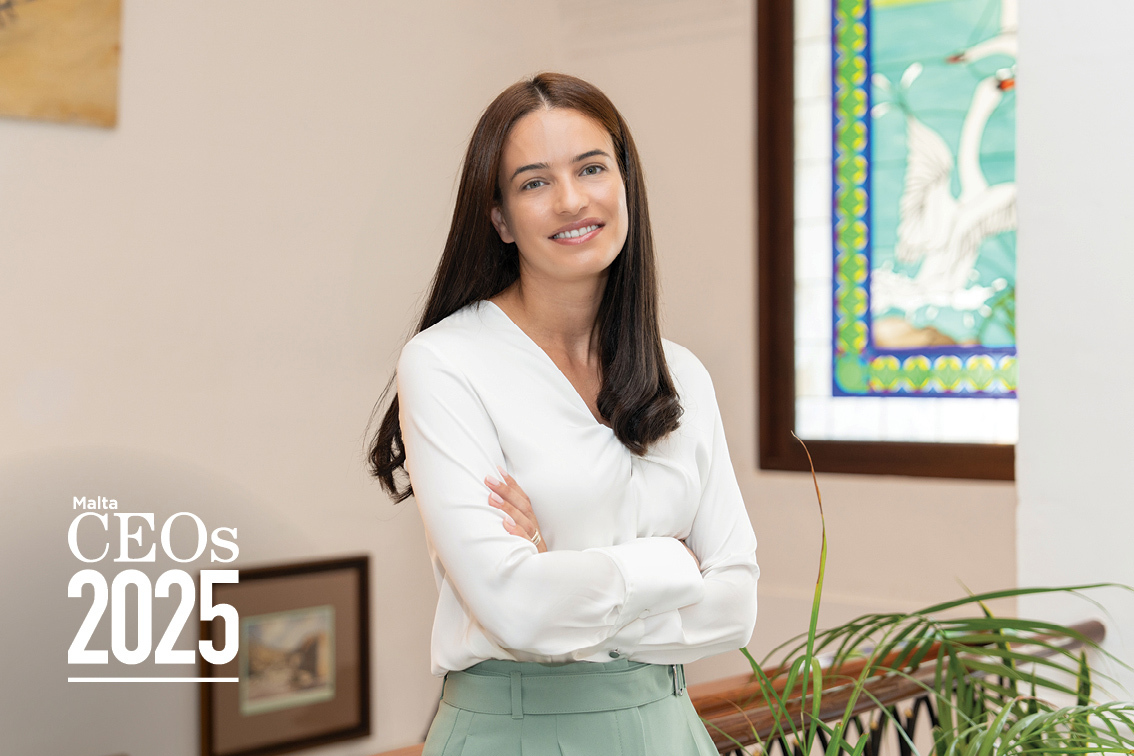
Sarah later deepened her knowledge of elderly care by obtaining a Postgraduate Diploma in Gerontology and Geriatrics while serving as General Manager of Casa Antonia – a position she held for 10 years. Now, as Managing Director of both Casa Antonia and The Imperial, Sarah works closely with the Chief Financial Officer, as well as the General Manager and Nursing Manager of each home, who are responsible for the operational and medical management of the homes.
Yet, as a family-run business, decisions are made collectively by Sarah, her father and brother. “We are all very involved and like to take decisions together,” she shares. Sarah’s week is divided between the two homes and involves plenty of variety – a feature of her role that she loves. From conducting staff interviews and show-arounds with new residents, to participating in the day’s activities and overseeing refurbishment and upgrade projects, no two days are the same. “I love that my role allows me to focus on a bit of everything, including accounting, law and HR,” Sarah remarks.
On the other hand, she does not enjoy the time-consuming paperwork as much. “Recently, we’ve become a heavily regulated industry, which means we often need to prepare reports and policies for the authorities that regulate our sector,” she explains.
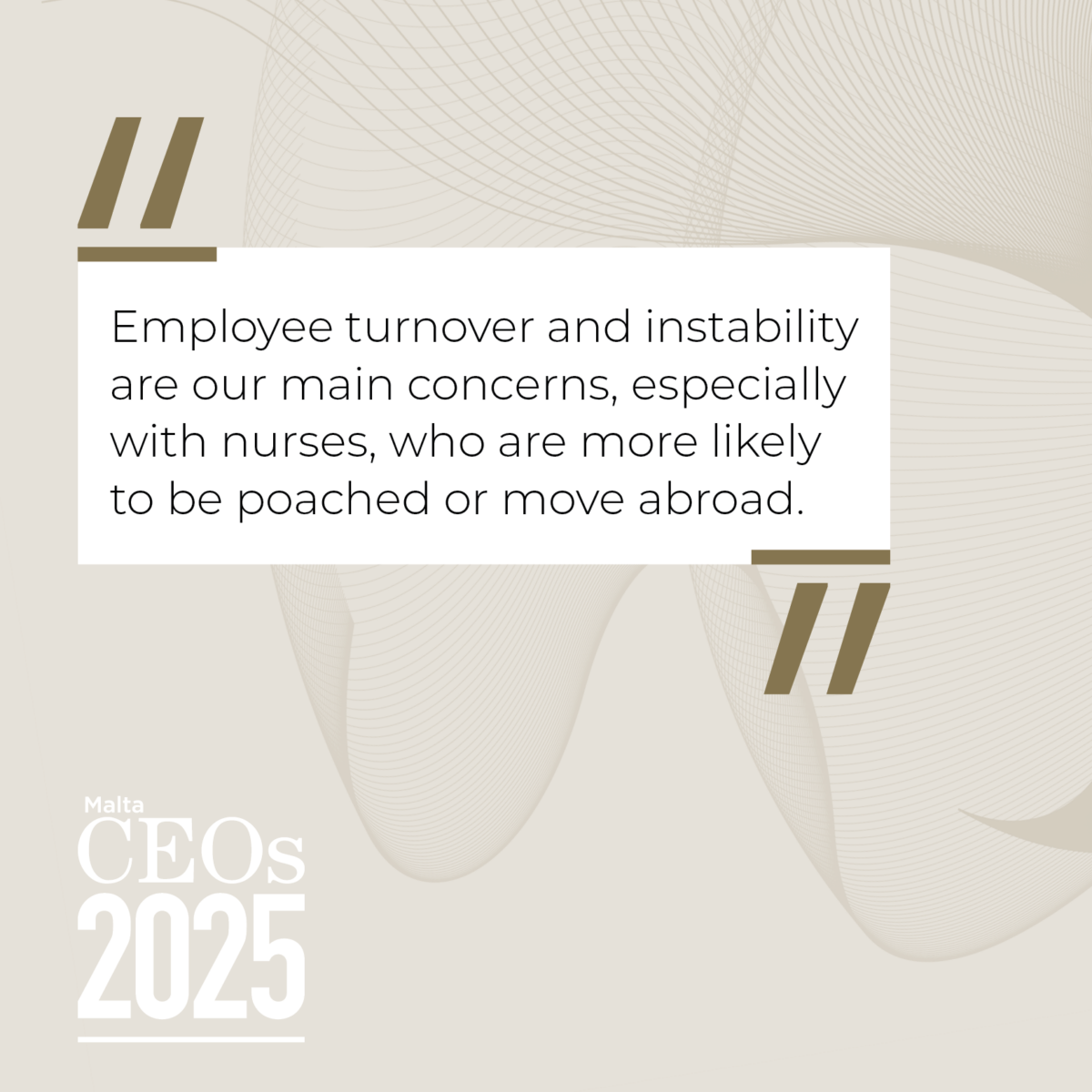
HR presents another challenge. “Finding carers and nurses has become very difficult, and it’s disappointing when people leave after we’ve invested so much in their training,” she observes. To address this, Sarah emphasises the importance of maintaining good relationships with staff. “We strive to stay as close as possible to our employees, especially care assistants, who have physically and mentally demanding jobs. I firmly believe in our team’s abilities, and showing faith in them makes a real difference,” she asserts.
Recalling her own experience working at the front desk, Sarah adds, “I empathise with those at reception who receive daily calls from the same residents asking what time Mass is – often multiple times a day. This can be stressful, but whenever an employee confides that they don’t think they can handle it, I always say, ‘If I can do it, anyone can’. With practice and training, I know they can succeed.”
For Sarah, patience and empathy are essential when considering the specific needs of their residents, many of whom face health challenges and declining mental capacities. “We have to be sensitive to whatever they’re going through, whether it’s illness, widowhood or the loss of independence. All of these are painful experiences. Sometimes, things that seem trivial to us – like an unsatisfactory meal or Mass starting 10 minutes late – are a big deal to our residents. If something means a lot to them, it needs to be important to us too,” Sarah notes.
The staff at Casa Antonia and The Imperial go above and beyond to make the later years of their residents’ lives more than just bearable. In addition to offering first-rate facilities in welcoming settings, both homes provide a range of care and medical services delivered by qualified professionals, along with hairdressing and beauty facilities, in-house catering and freshly prepared meals from seasonally rotated menus.
A thoughtfully curated schedule of activities and outings keeps residents engaged. “We don’t just provide the basics for comfortable living. When studying gerontology and geriatrics, I learnt that one of the most important things in life is maintaining a sense of connection and always having something to do. This is why we prioritise a dynamic social routine that keeps residents active, engaged and mentally stimulated,” Sarah explains. “Our managers know all the residents personally, so we tailor experiences to individuals. For example, one of our residents was the first registrar of Malta and loves getting involved in our operations. Not only does he attend our activities, but he sometimes organises them himself. Participating in meaningful day-to-day activities gives residents great satisfaction and purpose, highlighting that they still have so much to offer.”
While social interaction is integral to life in a care home, The Imperial is also a hub of activity for non-residents. With a multi-purpose hall rented out for third-party events, a pool used for children’s swimming lessons, and a coffee shop and physiotherapy gym open to the public, The Imperial generates a steady flow of traffic. This creates a lively environment that encourages residents to interact with others, often younger people, helping them feel connected to the local community and countering the perception that retirement homes isolate residents from the world outside.
This community-focused social dimension has been key to The Imperial’s success. Located in the cosmopolitan town of Sliema, The Imperial opened its doors in May 2021 after an extensive renovation that restored the historic property to its former glory. Launching The Imperial was a passion project for the whole family and has been Sarah’s biggest business milestone to date.
Her greatest challenge, however, came just before The Imperial was ready to welcome its first residents, with the onset of the COVID-19 pandemic. “We went into lockdown immediately, which meant that 70 staff members, including myself, had to live onsite at Casa Antonia in an adjacent property that we rented. Getting set up in four days, shifting our operations, and catering for both staff and 150 residents for weeks on end was quite a logistical feat,” she recalls. “Thinking back to how we pivoted so swiftly in such a dire situation makes me believe we could survive anything.”
Sarah admits that the business struggled for a while after the ordeal, particularly due to the negative press directed at care homes during that period. The pandemic also delayed the opening of The Imperial, which was in its final stages of construction. However, she reveals that the company has since turned things around, reaching full occupancy in both homes in 2024. Additionally, another key goal achieved over the year was the refurbishment of Casa Antonia, which included garden landscaping and new lift installations.
In 2025, Sarah anticipates that talent recruitment and retention will remain challenging. “Employee turnover and instability are our main concerns, especially with nurses, who are more likely to be poached or move abroad,” Sarah remarks. However, she also highlights a positive trend: seniors are choosing to move to The Imperial while still in good health, primarily to enjoy its hotel-standard facilities and services. This has played a significant role in reducing the stigma around retirement homes in Malta.
As industry regulations increase and more players enter the private sector, Sarah predicts that competition will ultimately benefit residents due to a rise in industry standards – a challenge she feels ready for. “We know that we have the two best care homes in Malta, and we aim to maintain our position next year. A lot of work goes into operating at the level we’ve set, but we’re eager to keep going and explore new ways to make our residents’ lives even better,” she concludes.
This article is part of the serialisation of 50 interviews featured in Malta CEOs 2025 – the sister brand to MaltaCEOs.mt and an annual high-end publication bringing together some of the country’s most influential business leaders
‘It’s unwavering persistence that drives breakthrough achievements’ – Manila Di Giovanni, DWorld CEO
'Our virtual economy hub will showcase Malta’s heritage, local enterprises, startups, and public institutions on the global stage.'
‘If you believe in what you’re trying to achieve, you’re already halfway there’ – Jordan Camilleri
The co-founder of Health & Co describes establishing and running a business as a life-long learning process.
‘We want to push the boundaries. We want to lead’ – AX Group CEO and Deputy Chairman Michael Warrington
His experiences working across various industries, have provided Michael Warrington with valuable insights into how AX Group's businesses are affected.
‘Technology changes so rapidly that what was agreed at the beginning of the year can change halfway through’ – Joseph Aquilina
The company never stops innovating and diversifying, which infuses different areas of the business with energy.


